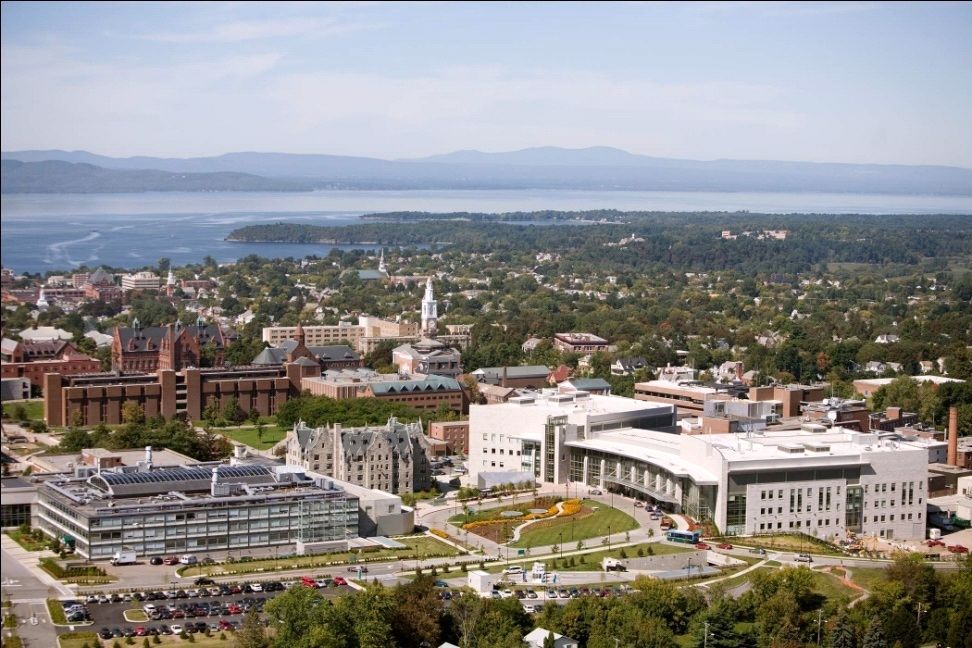
Vermont Hospital Wants To Be The Greenest Health Care Facility in the US — And Makes a Convincing Case (Part I: Mainstreaming Sustainability)
Sustainability, clean energy investment, green jobs and health care reform have all been resounding themes of the first 18 months of the Obama administration. But rarely do we conceive of healthcare reform as a holistic paradigm that links notions of human health with efforts to drive sustainable business innovation. Healthcare accounts for nearly 1/6 of our GDP. And while job growth over the next few quarters is uncertain as the world claws its way out of the Great Depression 2.0, both people and the environment will require healing at a constantly increasing rate.
A question then arises, can sustainability become a material driver for affordable and trustworthy health care? Can we then posit that if 1/6 of our economy functions in a more sustainable manner, we could not only preserve the environment but perhaps lower health care costs simultaneously? Rather then serving proteins with antibiotics that cause wily antibiotic resistant pathogens to flourish creating expensive and dangerous infections in our hospital rooms, why don’t we solve the problem upstream by serving antibiotic-free proteins? Dare to dream.
For one non-profit hospital in the resplendent college town of Burlington, Vermont, a sustainable health care operation is not a vision, but requirement for their license to operate: To improve the health of the community and to address “the elephant in the room [climate change].”
Fletcher Allen Health Care sees no wedge between providing health care to one million people in Vermont and northern New York state and tending the garden of its New England environs. The second largest employer in the state (over 7,000 employees in the 2008/09 fiscal year) has a broad sustainability strategy the covers energy efficiency, waste, nutrition, local sourcing and education and awareness. While this all sounds good and in the moment, Fletcher Allen is concerned only with results and not attractive marketing messages: Senior management have sustainability performance metrics in their annual HR reviews. A sustainability council combines not just facilities management and environmental services staff, but also includes food and nutrition staff, security, marketing and finance. Now this is what we talk when we say integrated sustainability: mainstreaming the management process.
Let’s take a look at some of these key accomplishments:

- Energy: In 2006, Fletcher Allen partnered with its electricity utility to audit energy savings opportunities for the main campus. The organization invested $2.2 million in capital upgrades initially focusing on lighting (swapping T-12 fluorescents for T-8s, new ballasts, occupancy sensors) and then moving on to HVAC enhancements done by HVAC specialists in Louisville, KY. Plate frame heating exchangers were added to increase “free cooling” potential leveraging the brisk Vermont winters. All of these energy investments reached payback in year 3, resulting in a reduction in electricity consumption of 350,000 kWh and a reduction of natural gas use of 4,000 kWh. In all, Fletcher Allen has been able to reduce its carbon footprint by 2,607 tons.
- Waste: Fletcher Allen has been examining ways to reduce its waste stream for over 15 years. The hospital recycles and composts. 31% of its waste stream is recycled and in 2009, Fletcher Allen composted 300 tons of its organic waste.
- Local sourcing: The self-operated food service team works closely with a diverse slate of local growers and ranchers to procure as much local food as can meet demand. Part II of this piece will focus on Fletcher Allen’s food service program.
- Gardening: The facility grows its own herbs, fruits and vegetables on the roof of its Radiation Oncology Unit. In 2009, the first honey harvest was processed from the beekeeping venture run by the nutrtition services team.
Perhaps the greatest reason for Fletcher Allen’s demonstrable leadership in green health care is the style of its management. Dawn LeBaron, vice president of hospital services, explained in an interview that the hospital’s commitment to sustainability stems from the values members of the sustainability council bring with them to the office. “There’s lots of opportunity for influence,” Dawn explains.
Dawn makes a powerful broad point about hospitals and the link to sustainability: There is a significant sphere of influence opportunity when it comes to hospital staff.
Not only do hospitals touch basically everyone’s lives in transformative ways, they possess mission-driven human capital that is perhaps most attuned to preserving health and well-being. But health and nutrition are every day imperatives just as is the preservation of the earth. The teaching moment, therefore for a hospital, has significant implications if we are going to make sustainability a permanent economic objective; Fletcher Allen can not only influence its patients to look after themselves with greater vigilance, but push them to consider the link between local ecosystem and their health.
Given all of the public financing that goes to health care, Fletcher Allen’s case show us just how practical mainstreaming sustainability into the daily operations of our nation’s hospitals can be. Stay tuned to the Inspired Economist this week for part II of Fletcher Allen story that looks at the hospital’s national leadership on community-supported food sourcing.
Check out Part II of the series on Fletcher Allen Health Care.



Hello there.. very nice and useful writing, I think you really know about this problem. thanks for your posting about this, it help me a lot.
Hello there.. very nice and useful writing, I think you really know about this problem. thanks for your posting about this, it help me a lot.